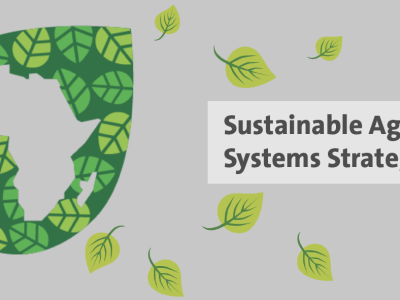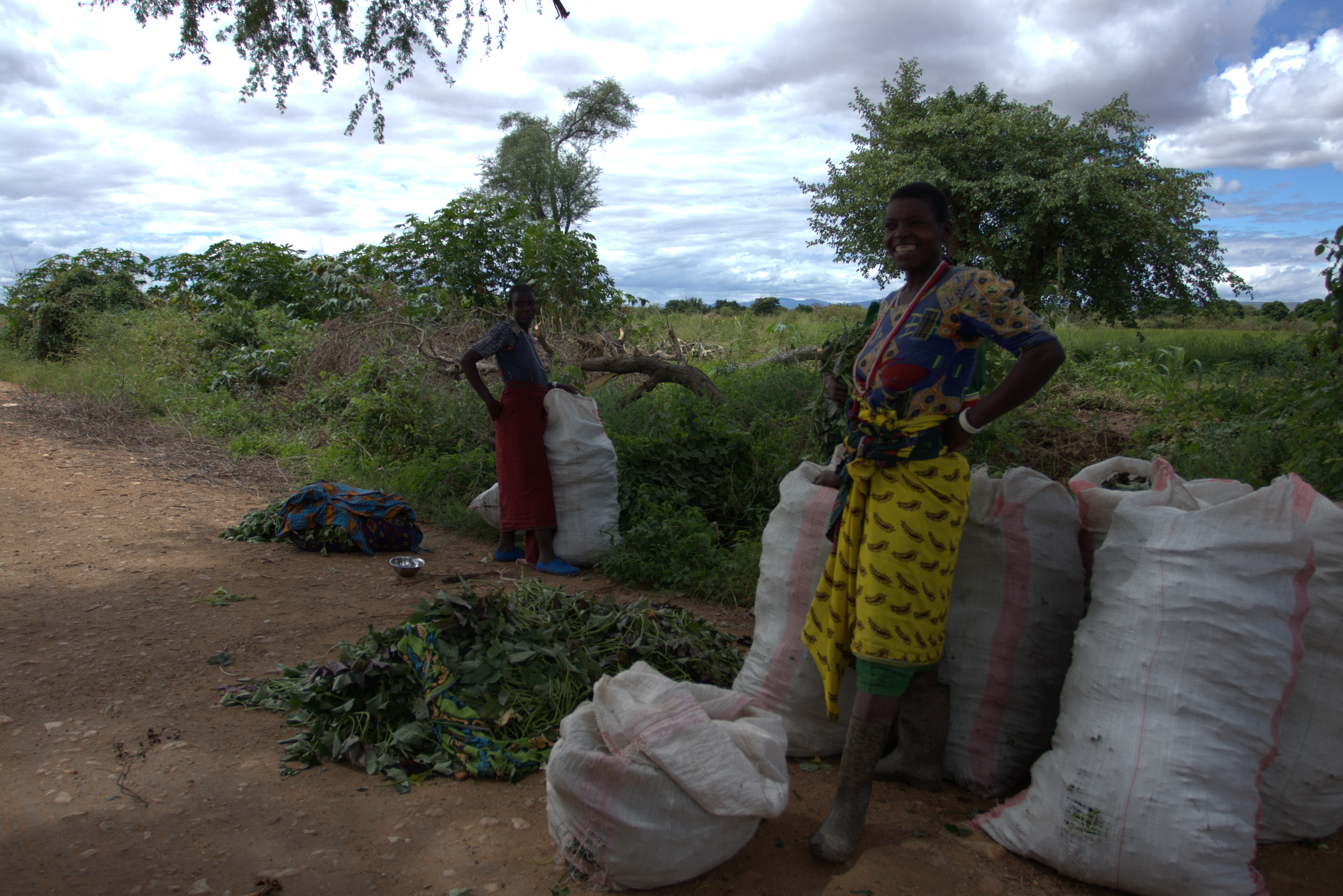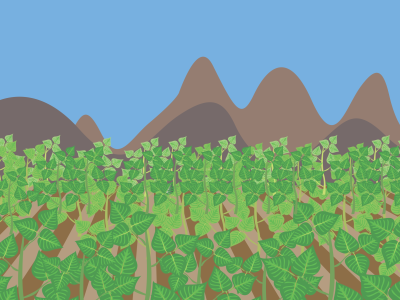
How can a bank’s financial services and networks contribute to the sustainability of food systems?
Finance can play a role in moving towards more sustainable food systems. ECDPM’s Paulina Bizzotto Molina and Jeske van Seters explore this topic with Maarten Biermans and Alain Cracau of Rabobank, an agricultural cooperative bank founded nearly 120 years ago in the Netherlands. What do you see as the main challenges, risks and opportunities in making food systems more sustainable and what is the particular role of Rabobank in this challenge?
What do you see as the main challenges, risks and opportunities in making food systems more sustainable and what is the particular role of Rabobank in this challenge?
Rabobank takes the challenge of the earth having to feed nine billion people in 2050 to heart. Climate change makes this challenge even more difficult to tackle. The agricultural sector is a major contributor to climate change, being responsible for a third of total global greenhouse gas emissions. Agricultural players will have to increase yields while reducing negative environmental externalities. Smart agriculture is necessary to tackle these multiple objectives. Agriculture is in the Rabobank’s DNA, so we feel a responsibility to contribute to efforts to tackle this challenge. We can collaborate with and support our customers and business partners to engage in more sustainable business practices, as well as engage in global initiatives such as the World Business Council for Sustainable Development.
Under the banner ‘Banking for Food‘, Rabobank aims to help its customers face up to the immense challenge. The bank’s strategy to contribute to a sustainable development of agriculture centres on the four internationally recognised dimensions of food security: increasing availability of food, improving access to food, promoting balanced and healthy nutrition and increasing stability in the supply chain. Rabobank invests not only in agriculture, but all along food supply chains. The bank has a total of €96bn in credits to businesses in the agro-food sector, ranging from farmers and horticulturists to food processing companies and supermarkets. We support customers who want to invest in the agro-food sector and in some cases invest ourselves directly.
How does Rabobank concretely support clients towards more sustainable business practices?
Compliance with sustainability criteria is a prerequisite for accessing Rabobank financing, but we support the shift towards sustainability of our clients by going beyond providing financial services. We are actively involved with our clients and their projects, thinking together with them about better ways to do their business. Thanks to our long history as a cooperative bank in the agri-food sector, we have our own research department and a large network of actors in the food system, from businesses to policy makers and knowledge institutes. Rabobank takes on the role of network player.
We link customers with each other and with the expertise that we have either in-house or in our network of customers and partners, for example by linking a question of a client with an expert at the Wageningen University. The role of Rabobank as knowledge broker is important. Knowledge is power. Improving access to market information and knowing about available technologies and innovations can be the key to change. We believe very much in the potential of big data solutions that can contribute to many of the sustainability challenges.
Rabobank supports innovation in the agri-food sector, as it is central to transition to more sustainable food systems. We recently launched the Rabo Food & Agri Innovation Fund. This venture capital fund targets innovative food and agri companies that are able to bring innovative solutions to the mainstream. The fund will primarily invest in western European countries and the USA.
Rabobank is also increasingly active in developing markets, with their own challenges and opportunities. What is Rabobank’s approach in these markets?
In developing markets such as in Africa, bigger steps can generally be made with relatively small investments. Sustainability can be enhanced with relatively little capital investment. In Africa, Rabobank, through Rabo Development, primarily works together with local banks to improve the access to affordable finance. Concretely, Rabo Development provides them with capital, management services and technical assistance.
Rabobank Foundation, the bank’s social fund, helps farmers to organise themselves in cooperatives, enabling them to invest, for example, in better storage methods for their products. This serves their interests, as well as the interest of larger companies further down the value chain, sourcing from smallholders. Rabobank Foundation efforts are geared toward strengthening farming communities’ economic base. First and foremost, Rabobank Foundation aims to achieve this by supporting them in forming and strengthening cooperatives or organisations that are structured along cooperative lines. It also invests in the economic self-reliance of the cooperatives. These cooperatives may be producer organisations such as those of coffee and cotton farmers, or they may be savings and credit cooperatives.
To what extent is there a role to play for blended finance (combination of grants and loans) to strengthen sustainable food systems? What are your experiences so far?
Blended finance certainly has a role to play. It can serve to de-risk certain investments, but importantly also allows for more ‘patient money’. For example, replanting cocoa trees may be desirable from an economic and an environmental perspective in the long run, but if it takes 10 years for the plants to bring in sufficient returns, this is not something that commercial banks can engage in. A public grant component or guarantee can help. In some cases where specific expertise is needed, we work together with other partners.
We have experienced blended approaches by servicing the whole coffee chain from strengthening cooperatives through Rabo Foundation and Rabobank International Advisory Services up to our commercial financing and pre-financing schemes with traders, roasters and retailers. Other examples are our work with World Wildlife Fund (WWF) in four projects globally, from sugar and water treatment in India to integrated cropping in Brazil and biodiversity with dairy farmers in the Netherlands, where we learned what business cases can have sustainable impact, whilst we know which financing alternatives and blended approaches are feasible to leverage the pilot projects. For instance, we have developed impact loans with the EIB in the Netherlands for sustainable frontrunners.
These all have been examples of connecting the dots from soft loans to commercial financing directly or in close cooperation with financial partners. It starts with knowing what business cases and sustainable indicators trigger a blended approach. We see great benefits of adding third parties to this approach. In 2017 Rabobank became member of the World Business Council for Sustainable Development, heading the Climate Smart Agriculture working group. In that role we are able to identify projects with food and agri components where the need for blended finance schemes could add value.
However, blending is not an easy exercise. Different partners have different objectives, which need to be married in a single endeavour. We have to balance the interests of these public grants with those of our customers. Furthermore, different blending tools have different requirements and procedures to be respected that can make them cumbersome to implement. Even though blending is tricky, it can be a powerful tool.
About the authors
Alain Cracau is Team Manager, Sustainable Business Development at Rabobank.
Maarten Biermans is Head of Sustainability Policy at Rabobank.
Read the full magazine issue







